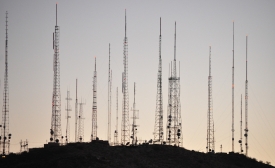foreign policy

In the midst of what some scholars have called a “global communications arms race” the U.S. House of Representatives is considering legislation to overhaul the structure of U.S. international broadcasting (USIB).
But digital diplomacy is not the same as digital outreach, and it is not limited to Facebook. My focus in this debate has been on the need for DFAT to develop and exploit online influence, not to critique its online reach. I agree with DFAT's own definition that diplomacy is less about popularity and more about persuasion. Australia's ability to use digital tools to persuade or influence populations was not assessed in the Portland report.

This article unpacks Turkey’s transition from being a historically status-quo nation to that of a proactive international player, using as examples the recent formation of a middle power alliance with Mexico, Indonesia, Korea and Australia (MIKTA), an emphasis on religion as an “explicitly recognized factor of influence on foreign policy,” and economic cooperation with developing countries such as Somalia, Sudan, Syria and the former Soviet Republics in Central Asia and the Caucasus.
When US President Barack Obama recently spoke at the United Nations about countering the Islamic State, many of his critics complained that he put too much emphasis on diplomacy and not enough on the use of force. It is more accurate to see the current mood as a swing of the US foreign policy pendulum between what Columbia University’s Stephen Sestanovich has called “maximalist” policies and “retrenchment” policies.
China with a growing economy and military power has started to become a serious threat for United States of America, as there are several reports indicating that Beijing is involved in covert operations against White House through a soft power strategy that Washington never thought would be used against it to such good effect.







